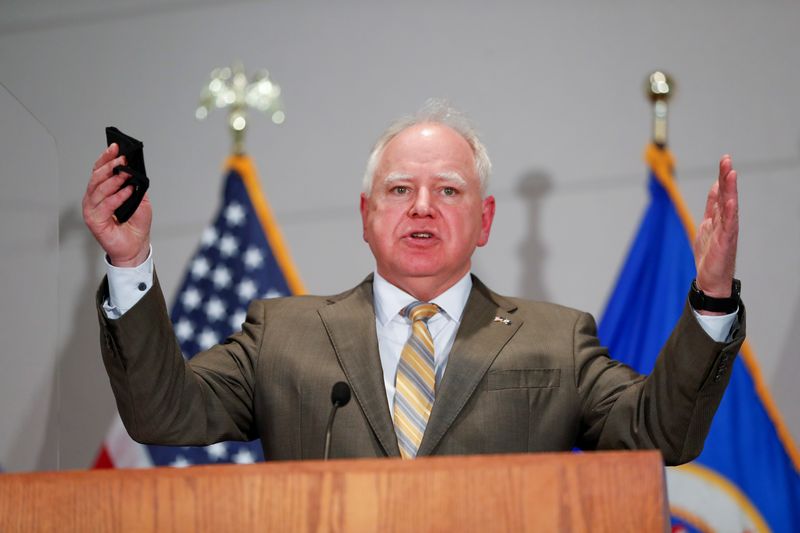
Did Tim Walz actually claim America will allow child labor if Donald Trump is re-elected as President of the United States? Apparently, yes, he did. He claimed Trump and “Project 2025” will put children at risk and force them into child labor.
Walz connected Trump to the now debunked connection between the former president and Project 2025, an independent ‘to-do’ list by the Heritage Foundation, an organization which has no ties to the Trump campaign.
In a surprising recent statement, Minnesota Governor Tim Walz claimed that former President Donald Trump wants to bring back child labor, sparking intense backlash from Trump supporters and adding fuel to an already heated political climate. The bold accusation, however, raises serious questions: Is there any evidence to support Walz’s assertion, or is this simply another instance of political hyperbole?
Walz made the comment during a speech, appearing to draw a connection between Trump’s deregulatory agenda and the loosening of labor protections. “If Donald Trump had his way, he’d bring us back to a time when child labor was a norm,” Walz said. The remark seemed aimed at framing Trump’s policies as regressive, particularly in relation to workers’ rights and protections.
However, despite Walz’s bold statement, there is no documented evidence that Trump has ever endorsed the return of child labor. The former president has not spoken publicly in favor of such policies during his time in office or in his current campaign for the 2024 election. Trump’s platform has often focused on economic growth, deregulation, and America-first policies, but none of these directly suggest a rollback to pre-20th century labor standards.
This kind of rhetoric is not uncommon in modern politics, where provocative soundbites are often used to underscore broader critiques of a candidate’s policy positions. Walz could be interpreting Trump’s deregulatory stance, especially around business regulations, as potentially dangerous to workers’ rights—though connecting this to child labor is a significant leap.
Trump supporters and political commentators were quick to respond. “There’s absolutely no basis for what Walz is saying,” one Trump ally told reporters. “This is just another example of Democrats twisting the truth to scare voters.”
Walz’s comment comes as the political landscape becomes more polarized heading into the 2024 presidential election. Some critics accused the Minnesota governor of playing into exaggerated narratives, while others noted that Walz’s critique might be more metaphorical, referencing concerns about labor protections under Trump’s leadership.
Beyond this claim, some critics have levied other accusations against Walz, including claims of “stolen valor” regarding his military service. Walz served 24 years in the National Guard and retired as a command sergeant major. Despite these criticisms, there is no substantial evidence that Walz misrepresented his service. Still, in the volatile world of modern politics, accusations like these tend to snowball, especially as election season heats up.
While the child labor comment has drawn headlines, it also highlights a larger debate in America’s political discourse: How far is too far when making critiques of an opponent? Walz’s remarks are part of an ongoing strategy by Democrats to paint Trump’s policies as dangerous for everyday Americans, while Republicans continue to push back against what they see as unfounded attacks.
With the 2024 election looming and both parties digging in their heels, it’s clear that heated rhetoric will only intensify. For voters, the challenge remains to sift through the noise and seek out the facts beneath the political drama.

